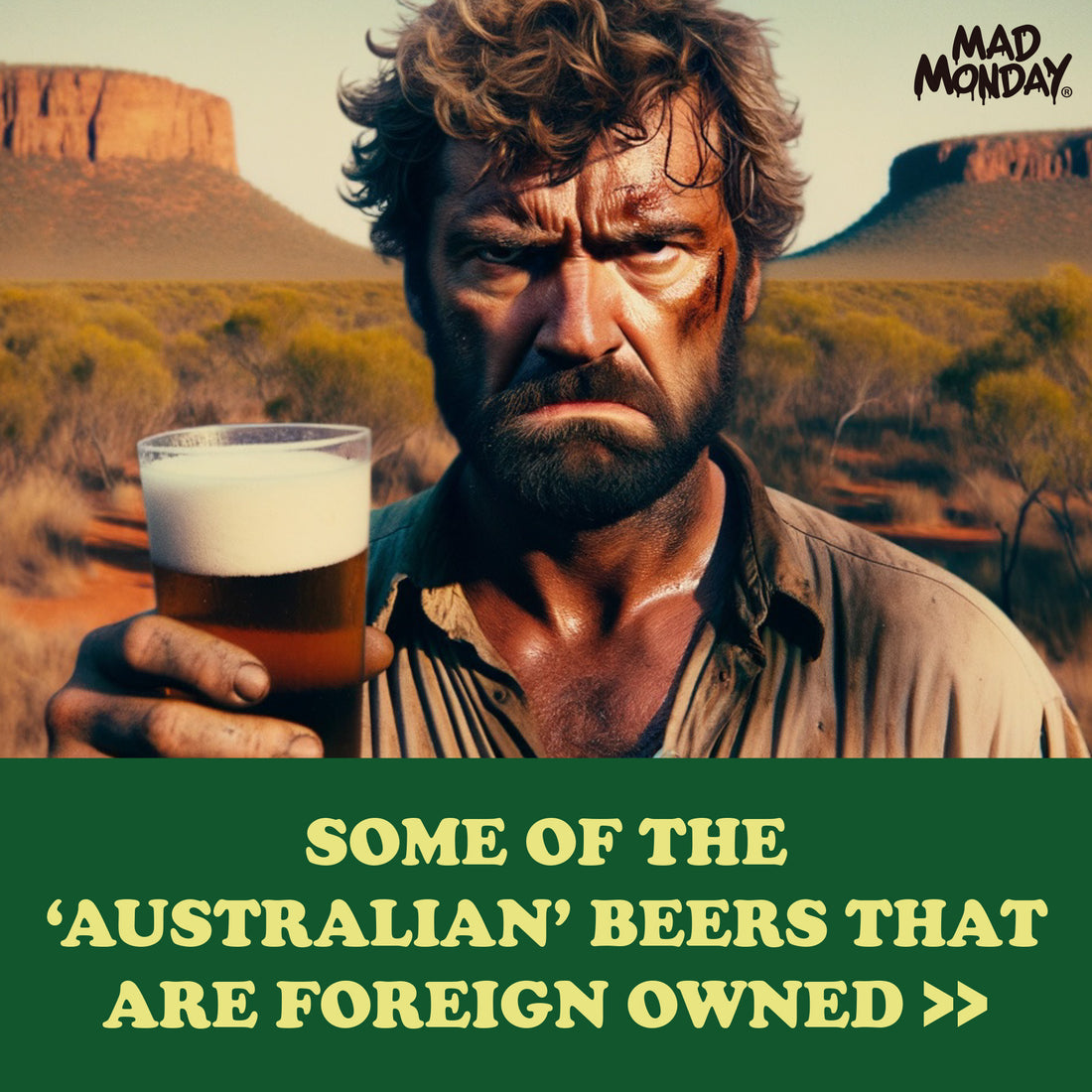
Some of the 'Australian' Beers that are Foreign Owned:
- Mountain Goat, Little Creatures, and James Squire:
Mountain Goat, renowned for its craft beers, is owned by Asahi Breweries, a Japanese brewing giant. Little Creatures, an iconic brewery from Western Australia, is also in the hands of Japanese ownership, having been acquired by Kirin Holdings. James Squire, a brand that often invokes images of Australian history, is owned by Lion, a subsidiary of the Japanese beverage company Kirin Holdings as well.
- XXXX, Hahn, and Tooheys:
One of Queensland's most famous beers, XXXX, is owned by Lion, a subsidiary of Kirin Holdings. Hahn, a brand with a long history in the Australian beer scene, is part of the global brewing conglomerate AB InBev. Tooheys, another Australian classic, is owned by Lion, making it part of the Kirin Holdings portfolio.
- Byron Bay Lager, James Boag, and Emu Export:
Byron Bay Lager, with its laid-back and beachy vibe, is owned by Lion, adding to the list of Australian beers under Japanese ownership. James Boag, a Tasmanian favorite, is owned by the Japanese brewing giant Asahi. Emu Export, a West Australian beer, is part of the Lion portfolio, falling under the ownership of Kirin Holdings.
- Swan, Kosciuszko, and West End:
Swan, a historic Western Australian beer, is also owned by Lion, contributing to the foreign-owned brands in the Australian market. Kosciuszko, named after Australia's highest peak, is owned by Asahi Breweries, continuing the trend of Japanese ownership. West End, a South Australian staple, is part of the Lion portfolio, making it another brand under Kirin Holdings.
- Carlton Draught, Carlton Dry, and Great Northern:
Carlton Draught and Carlton Dry, two well-known brands in Victoria, are both owned by Carlton & United Breweries (CUB), a subsidiary of AB InBev, a multinational brewing company headquartered in Belgium. Great Northern, often associated with the tropical vibes of Queensland, is owned by CUB as well.
- Victoria Bitter, Wild Yak, and Fosters:
Victoria Bitter, an Australian beer icon, is owned by CUB, part of the AB InBev global brewing conglomerate. Wild Yak, known for its unique flavors, is owned by Asahi Breweries. Fosters, though often associated with Australia internationally, is owned by Anheuser-Busch InBev, a Belgian-Brazilian-American multinational beverage and brewing company.
- Melbourne Bitter, Reschs, and 4 Pines:
Melbourne Bitter, a classic Victorian beer, is part of the CUB portfolio. Reschs, a New South Wales favorite, is owned by Lion. 4 Pines, a craft brewery from New South Wales, is owned by AB InBev.
- Balter, Pirate Life, and Crown Lager:
Balter, a Gold Coast craft beer success story, is owned by CUB. Pirate Life, another popular craft brewery, is owned by AB InBev. Crown Lager, often considered a premium Australian beer, is part of the CUB portfolio.
- Green Beacon and Kosciuszko:
Green Beacon, a craft brewery from Brisbane, is owned by Asahi Breweries. Kosciuszko, named after the mountain range, is owned by the same company.
While many Australians take pride in their local beer brands, the reality is that a significant portion of these iconic labels is owned by foreign companies. The foreign ownership of Australian beer brands has raised concerns among consumers about the impact on local brewing traditions, identity, and the future of the Australian beer industry. As consumers become more aware of the global ownership of their favorite beers, it remains to be seen how this knowledge will influence their choices and whether there will be a renewed interest in supporting truly Australian-owned and brewed beers.

